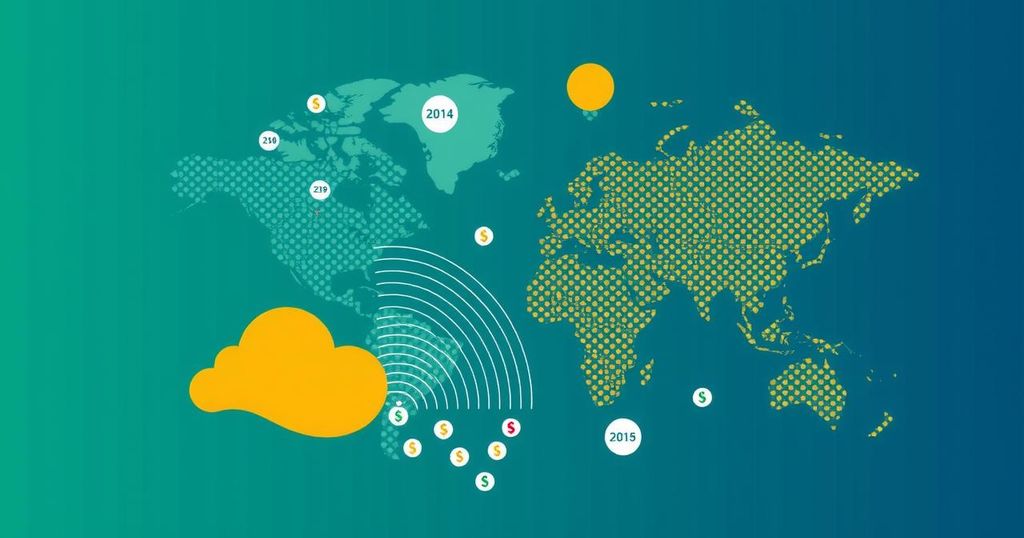The COP29 summit resulted in a pledge from wealthy nations to increase annual funding for climate action to at least $300 billion by 2035. However, this amount is insufficient compared to the trillions needed by poorer countries facing severe climate impacts, according to analyses. Critiques emerged, especially from vulnerable nations, expressing concerns over the adequacy of the funds provided.
The COP29 climate summit concluded on November 24 with an agreement from wealthy nations to provide funding aimed at combating climate change. Despite the commitment, the pledged amount was deemed inadequate, falling well short of the estimated trillions required by poorer nations to effectively address climate challenges. Negotiations involved nearly 200 countries and highlighted disputes among major economic powers, including the United States, the United Kingdom, the European Union, and China, who debated the funding framework for climate response efforts.
The final commitment includes an annual contribution of at least $300 billion from affluent nations until 2035, a modest increase from an initial offer of $250 billion. Critics voiced concern that this funding will not sufficiently support vulnerable nations with rising sea levels and extreme weather events, as articulated in various analyses conducted prior to the summit. Alternative funding avenues, such as private investments and carbon credit trading, were also discussed but fail to close the funding gap indicated by climate advocates.
Representatives from countries like Malawi, the Marshall Islands, and the Maldives expressed dissatisfaction with the agreement. Tina Stege, the Climate Envoy of the Marshall Islands, remarked, “We have seen the very worst of political opportunism here at this COP. We are leaving with a small portion of the funding climate-vulnerable countries urgently need. It isn’t nearly enough, but it’s a start,” reflecting the sentiment that the existing allocation is insufficient. Furthermore, uncertainty looms regarding the actual financial contributions from wealthy nations as political dynamics evolve globally, particularly with the upcoming transition in U.S. leadership under President-elect Donald Trump, who has previously contested the validity of climate change.
The Conference of the Parties (COP29) serves as a platform for nations worldwide to negotiate and commit to actions aimed at mitigating climate change. Recent reports have highlighted the crucial need for extensive funding to support vulnerable nations affected by climate-related disasters. As global temperatures rise and extreme weather events become more frequent, the financial requirements for poorer countries to adapt and mitigate these impacts are staggering, necessitating collective action from wealthier nations. Previous meetings have underscored significant disparities in commitment levels, especially as geopolitical circumstances shift, particularly with the influential role of the United States in international climate agreements.
In summary, although the funding commitment made at the COP29 climate summit represents a step forward, it remains significantly distant from what is necessary to adequately support poorer nations in their climate response efforts. The agreement’s framework indicates a growing recognition of funding needs, yet the realities of political change and insufficient financial pledges highlight the ongoing challenges in global climate diplomacy. Moving forward, continuous advocacy and innovative funding mechanisms will be essential to bridge the gap between pledges and actual financial support needed to combat climate change effectively.
Original Source: newsukraine.rbc.ua







